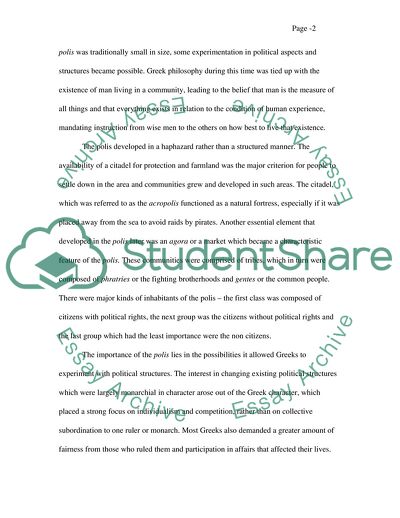Cite this document
(What Was the Polis and Why Was It So Significant to Greek Life Essay, n.d.)
What Was the Polis and Why Was It So Significant to Greek Life Essay. https://studentshare.org/politics/1709875-what-was-the-polis-and-why-was-it-so-significant-to-greek-life
What Was the Polis and Why Was It So Significant to Greek Life Essay. https://studentshare.org/politics/1709875-what-was-the-polis-and-why-was-it-so-significant-to-greek-life
(What Was the Polis and Why Was It So Significant to Greek Life Essay)
What Was the Polis and Why Was It So Significant to Greek Life Essay. https://studentshare.org/politics/1709875-what-was-the-polis-and-why-was-it-so-significant-to-greek-life.
What Was the Polis and Why Was It So Significant to Greek Life Essay. https://studentshare.org/politics/1709875-what-was-the-polis-and-why-was-it-so-significant-to-greek-life.
“What Was the Polis and Why Was It So Significant to Greek Life Essay”. https://studentshare.org/politics/1709875-what-was-the-polis-and-why-was-it-so-significant-to-greek-life.


